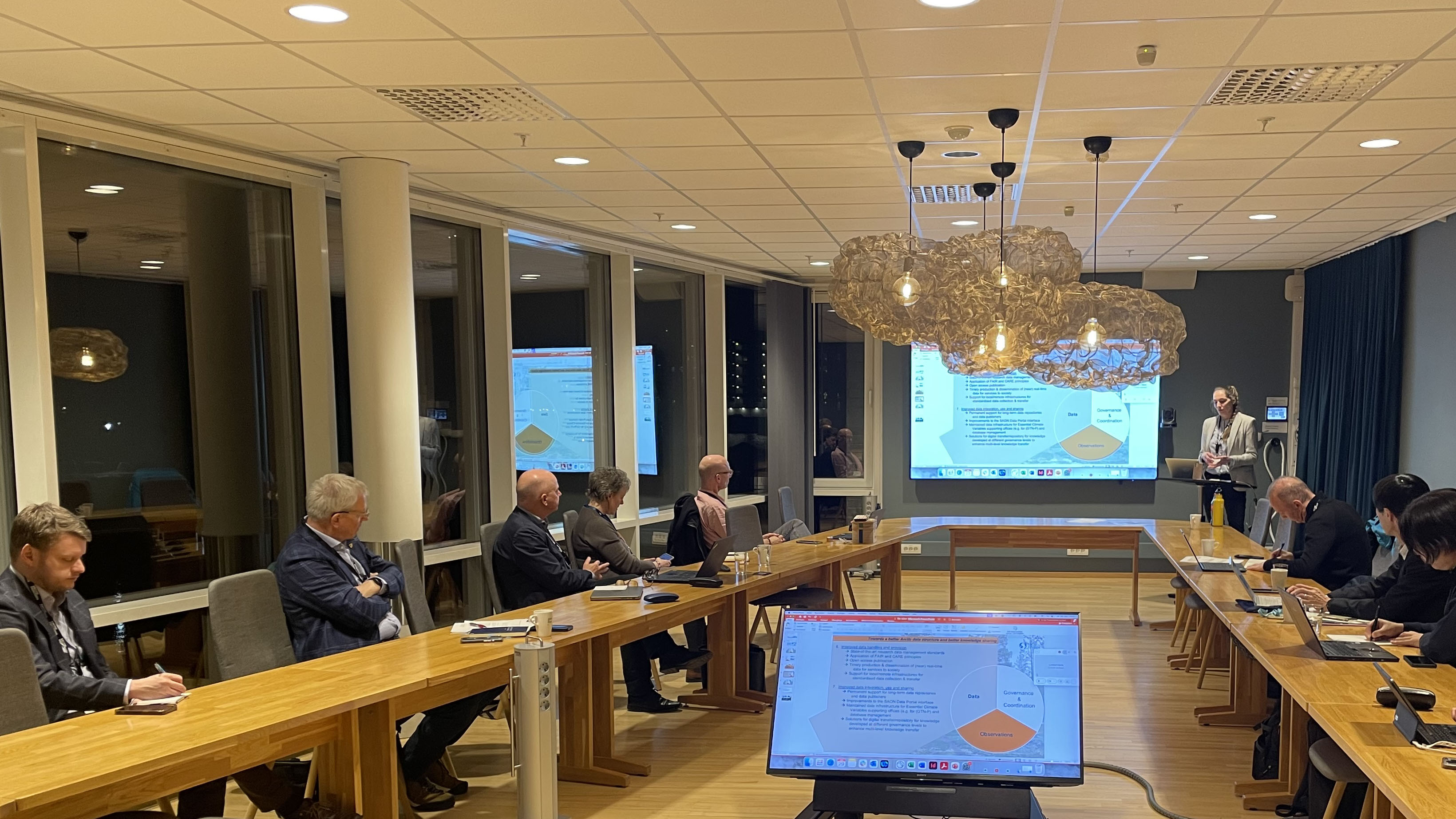Policy Support For The Arctic Science Funders Forum
by Lisa Grosfeld, Volker Rachold (AWI) | Published: 24-Apr-25 | Last updated: 24-Apr-25 | Tags : Arctic policy recommendations science | category: NEWS
 Photo: Volker Rachold
Photo: Volker Rachold
Arctic PASSION held a workshop with the Arctic Science Funders Forum in January 2025 focusing on challenges and possibilities for a sustainable pan-Arctic Observing System of Systems (pan-AOSS) from a funder’s perspective. In this frame, 10 recommendations towards a sustained pan-AOSS were formulated by the project. The key themes are:
- Sustainable coordination of an Arctic Observing System
- Support SAON’s ROADS process and the SAV Expert Panel
- Enhance the sharing of logistical platforms through a network of research stations and research infrastructures
- Equal inclusion of Indigenous Peoples, and other Arctic (or local) communities and their organisations as well as other (marginalised) groups and the equity of different knowledge systems
- Long-term funding for long-term monitoring
- Monitoring and observations must be based on societal needs
- Model-based support for designing an observation network and investment in a better use of new technologies
- Fund research on critical gaps in cryosphere science
- Improve data handling and provision
- Improved data integration, use and sharing
You can read the detailed recommendations here.
Challenges and possibilities
In the workshop with the Arctic Science Funders Forum, we received feedback to the recommendations, summarizing challenges & limitations as well as possibilities. Find them here.
The primary challenge for securing long-term funding for a pan-AOSS lies in the fact that most funding efforts are managed on a national level (with the exception of the EU funding programmes) and are focused on nationally prioritised research initiatives. In many countries, new research projects and initiatives are typically supported only through short-term, project-based funding. Only those observation systems directly relevant to the project’s objectives are funded for the duration of the grant. Managing and coordinating a long-term perspective remains challenging, especially when it requires an international programme. The combined international efforts and commitment needed for sustained funding for a better coordinated and integrated, more useful and more equitable pan-AOSS remains a significant challenge. Furthermore, if research institutions wish to support the pan-AOSS, the question arises as to how this can realistically be achieved, especially if their budgets from the governments or ministries remain unchanged.
To explore alternative funding options, it may be useful to consider approaching environmental protection agencies, private funders, or foundations, or integrating the pan-AOSS as an additional component of the WMO or Copernicus structures.
Additional opportunities exist in certain countries or funding programmes that are already addressing some of the recommendations, and many countries, despite lacking funding for an international pan-AOSS, are very willing to cooperate internationally and to be part of the process.
We would like to express our thanks to the Arctic Science Funders Forum, particularly to the current chair at the Norwegian Research Council, as well as the two co-chairs at Rannís and the Japanese National Institute of Polar Research, for graciously allowing Arctic PASSION to be presented at the meetings of the Forum and for the openness for dialogue and collaboration!
